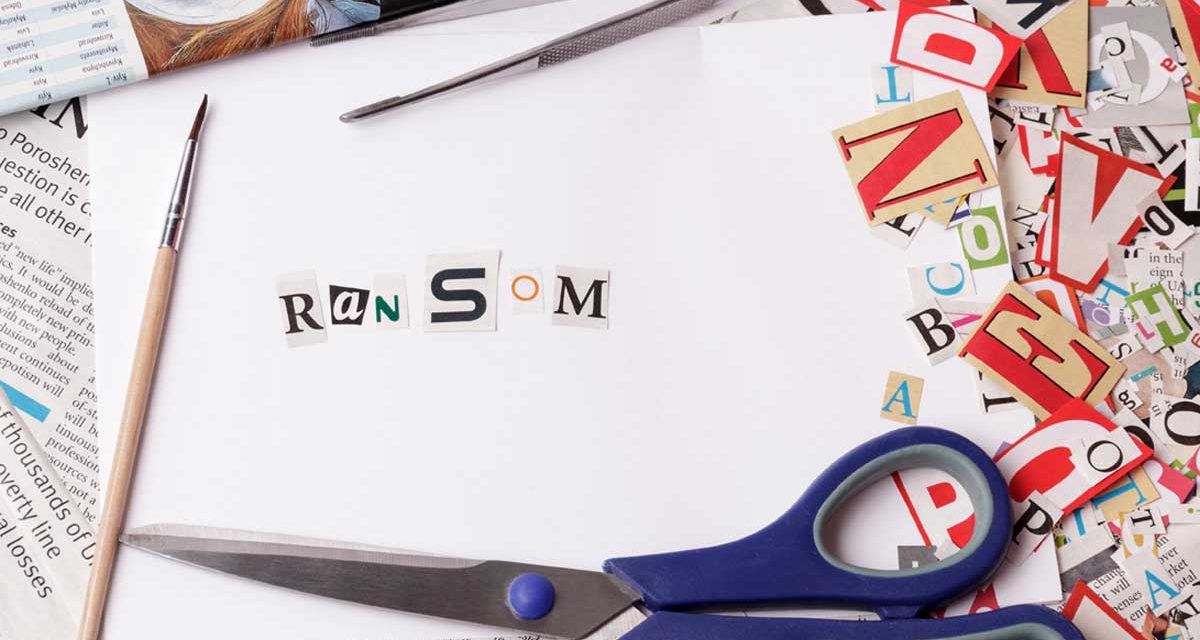Ransom notes. Suicide notes. Thank-you notes. Promissory notes. Teacher’s notes to parents. Notes to pass back to your best friend in class. Footnotes. Love notes. Lecture notes. Notes ad nauseam.
Twenty-First Century America is awash in notes. But who thinks about the ethics of all those notes?
After what turned out to be a less-than-exhaustive search, the answer is almost nobody. A few advice columns here and there in print media. A few cases or statutes on promissory notes. But overall it seems no one has wasted any time writing ethical rules or norms to help us write all those notes that wash over and around us every day.
Lest you think I’ve lost my ethical mind, keep in your mind the premise of ethics writ large. Aristotle defined ethics in terms of purpose and achievement. “Thus a sword that has the purpose of killing is a good sword if it achieves this well. In this sense, Aristotle translates ‘good’ as ‘effective.’ His definition also allows for the separation out of virtue, or ‘character-centered’ ethics, in which ethics are based in the person and their innate character.”[1]
Assessed for purpose and achievement, let’s examine ransom and suicide notes in terms of effectiveness rather than goodness. A ransom note demands payment for the return of a hostage. It stems from the French word rançon, meaning redemption.[2] The ransom sought is usually money, but may be compliance with some other demand. The JonBenét Ramsey kidnapper left an absurdly long ransom note demanding $118,000.[3] It was neither good nor effective, since it was never paid. John Paul Getty III’s kidnapper’s note asked for $17 million and included one of the victim’s ears. “If we don’t get some money within ten days, the other ear will arrive.”[4] Gruesome and effective.
Suicide notes are not always sad and are occasionally good. Madame Wikipedia defines them as death notes left behind before a person dies, or intends to die, by suicide. She estimates 25–30% of suicides are accompanied by a note.[5] Mostly they are pleas for absolution or blame family, friends, or society for life’s failings. But many are self-explanatory notes designed to protect rather than blame. There is even a website offering advice, support, and help in writing a suicide note. It offers eight not-so-cheery things to consider in writing your first suicide note: (1) Introduction. (2) Setting goals. (3) Should I leave a note? (4) Grief. (5) What not to write. (6) What to write. (7) The writing process. (8) Conclusion.[6] It does not offer ethical guidance, either for the act, or the note. Nor shall I.
Thank-you notes are cheery by nature, good in every case, and easily tested from an ethical perspective. Monsieur Hallmark is America’s leading expert on this subject. He says, “Since the dawn of time, people have struggled with the right way to say thank you. From prehistoric grunts around a campfire (Urrrp…good meat) all the way to present-day postings on Facebook (Shout out to my peeps!), we’ve come up with lots of easy ways to say thanks. Phone calls, emails, text messages—they all get the job done. But a handwritten thank-you note says more: It tells our friends and family that we went out of our way to sit down and write just to them, because they’re worth it.”[7] So, might that be an ethical test? It was, in a quainter era, the thing to do. But we are fast becoming a post-cursive world. Is it digital or handwritten? A better ethical norm is sincerity. Do you mean to say what you say in that handwritten or digital thank-you note? If you do, then you pass ethical muster.
Ransom, suicide and thank-you notes share one central ethical norm—sincerity. No one should commit a kidnapping, think about a helium mask, or accept an invitation to join a book club, unless they can write the obligatory note with genuine sincerity.
 I am an author and a part-time lawyer with a focus on ethics and professional discipline. I teach creative writing and ethics to law students at Arizona State University. Read my bio.
I am an author and a part-time lawyer with a focus on ethics and professional discipline. I teach creative writing and ethics to law students at Arizona State University. Read my bio.
If you have an important story you want told, you can commission me to write it for you. Learn how.
[1] http://changingminds.org/explanations/values/nichomachean_ethics.htm
[2] https://www.wisegeek.com/what-is-a-ransom-note.htm
[3] https://www.ranker.com/list/creepy-ransom-notes/jacob-shelton
[4] Ibid.
[5] https://en.wikipedia.org/wiki/Suicide_note
[6] https://archive.ashspace.org/ashbusstop.org/Note.html
[7] https://ideas.hallmark.com/articles/thank-you-ideas/how-to-write-a-thank-you-note/






 I am an author and a part-time lawyer with a focus on ethics and professional discipline. I teach creative writing and ethics to law students at Arizona State University.
I am an author and a part-time lawyer with a focus on ethics and professional discipline. I teach creative writing and ethics to law students at Arizona State University.  My latest novel is Hide & Be.
My latest novel is Hide & Be.  If you have an important story you want told, you can commission me to write it for you.
If you have an important story you want told, you can commission me to write it for you.